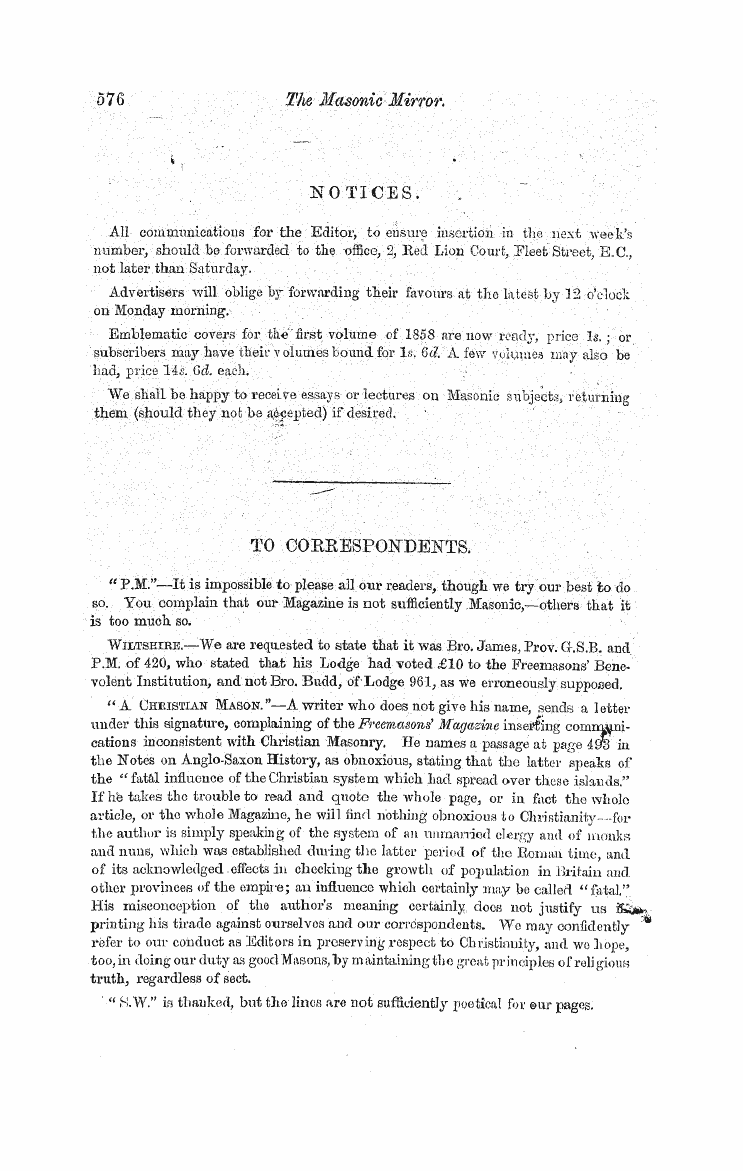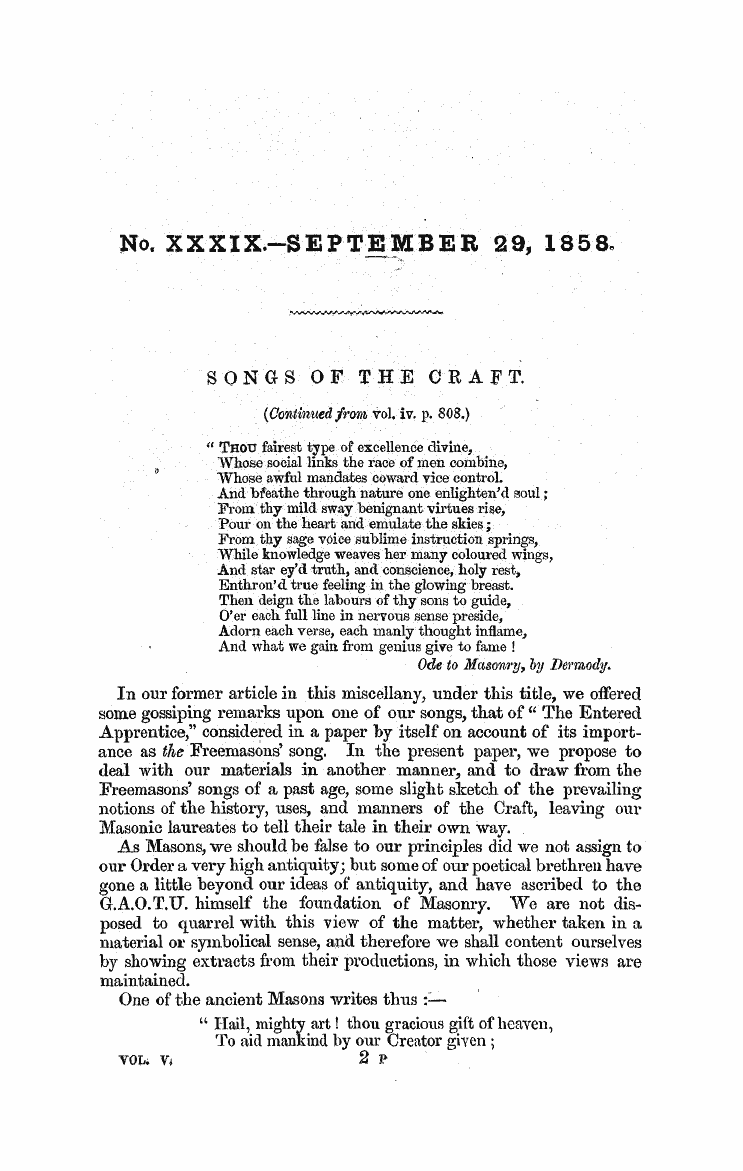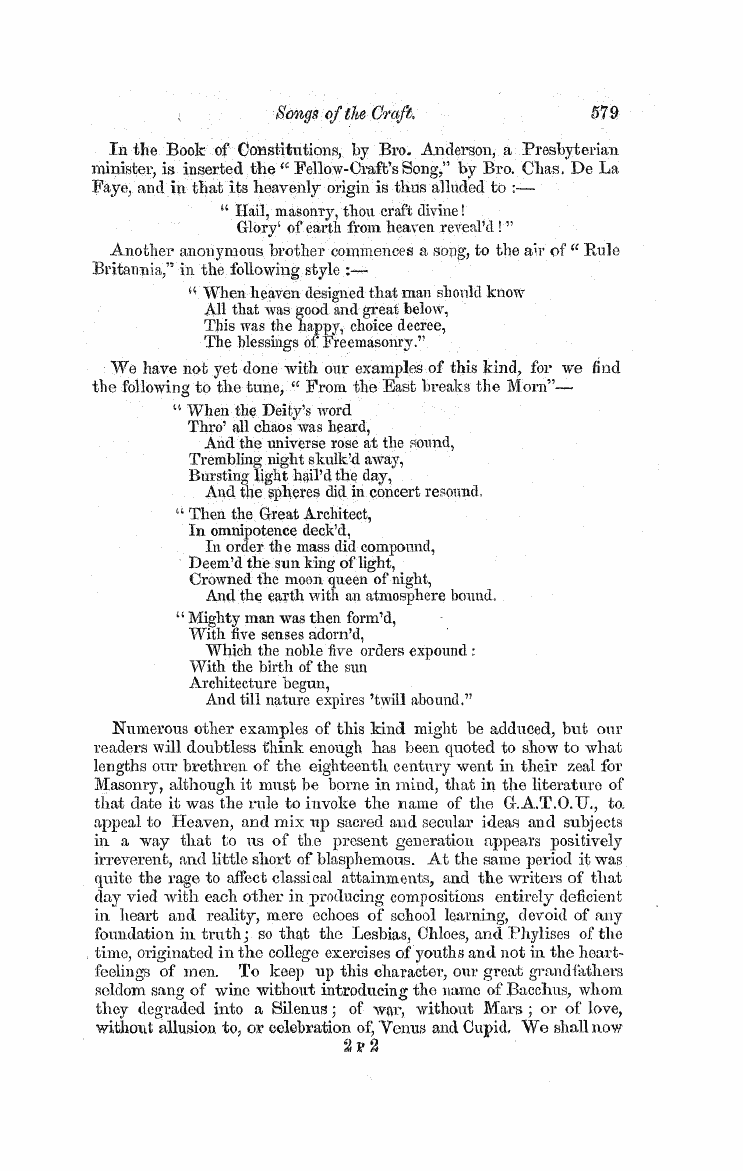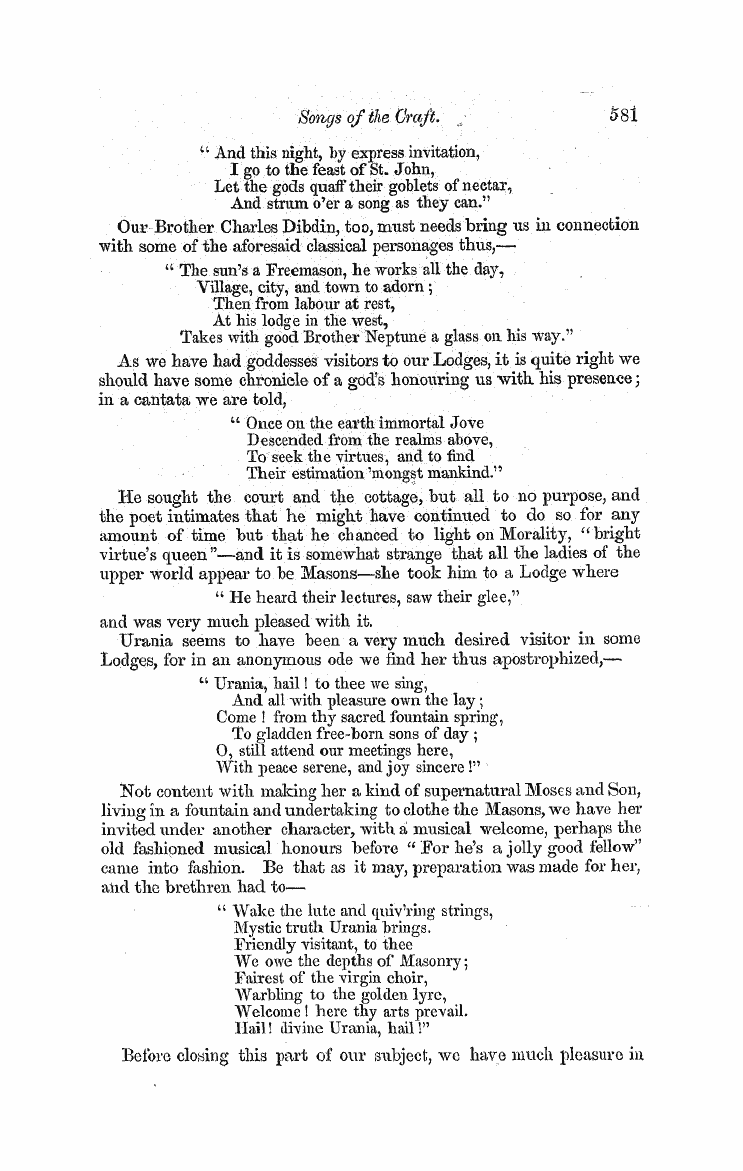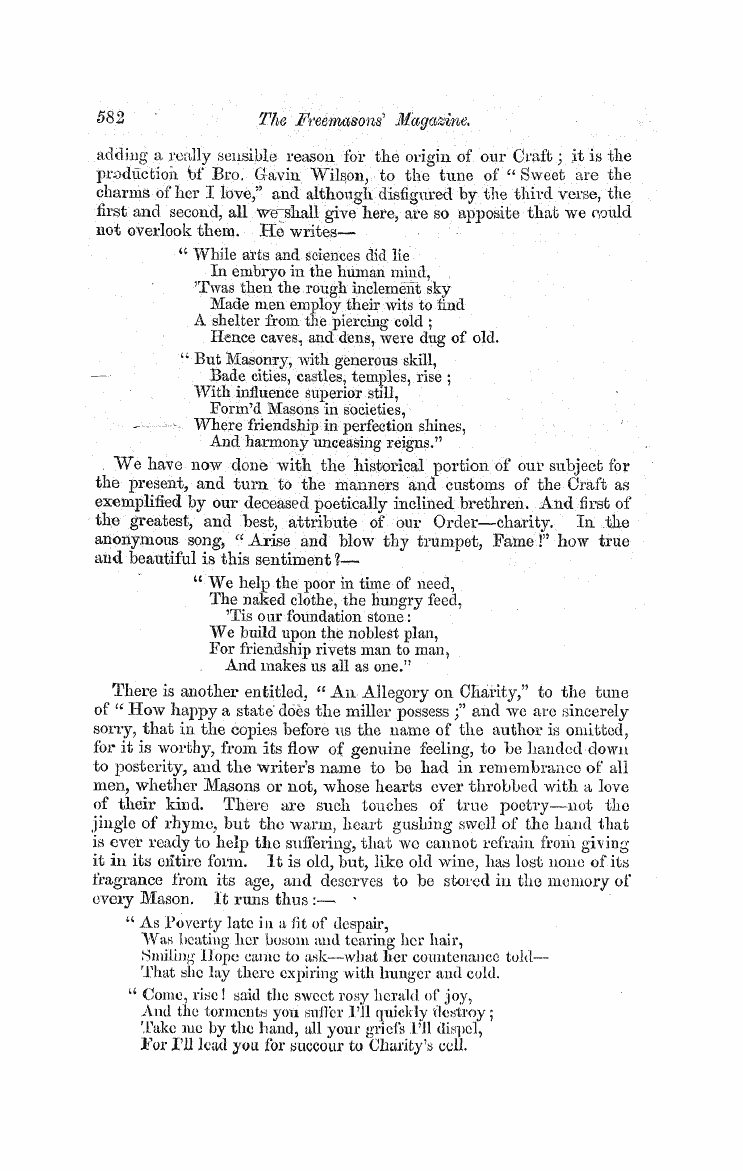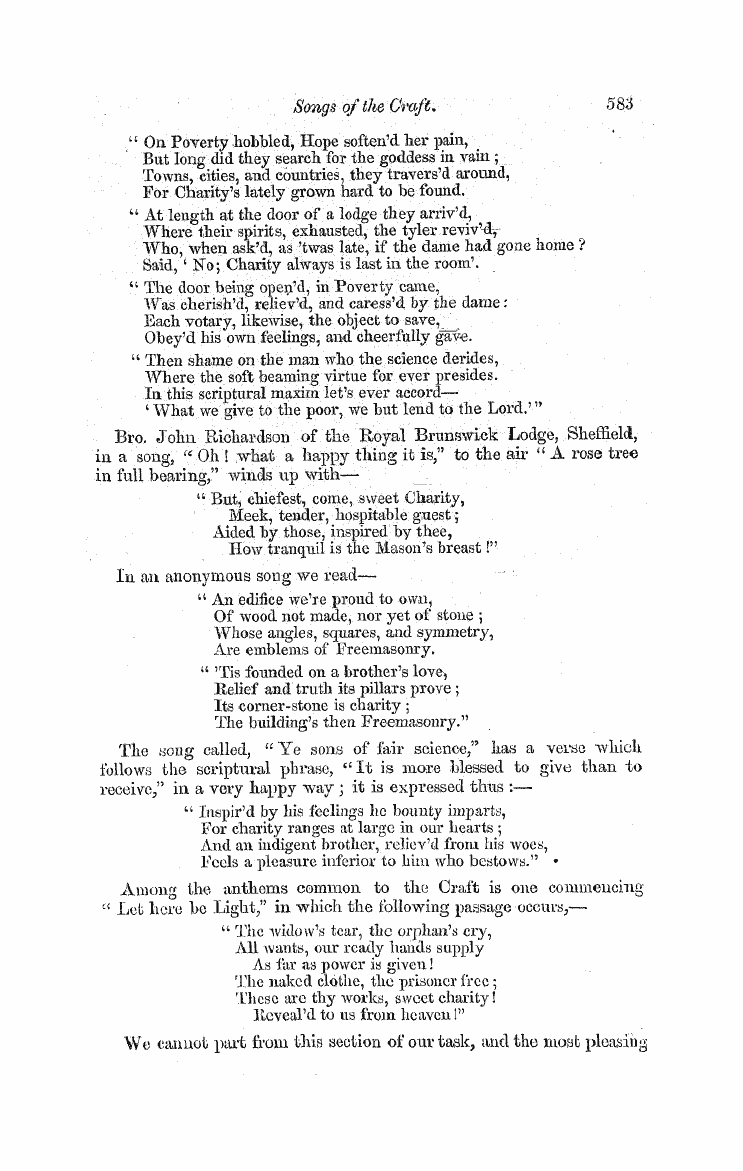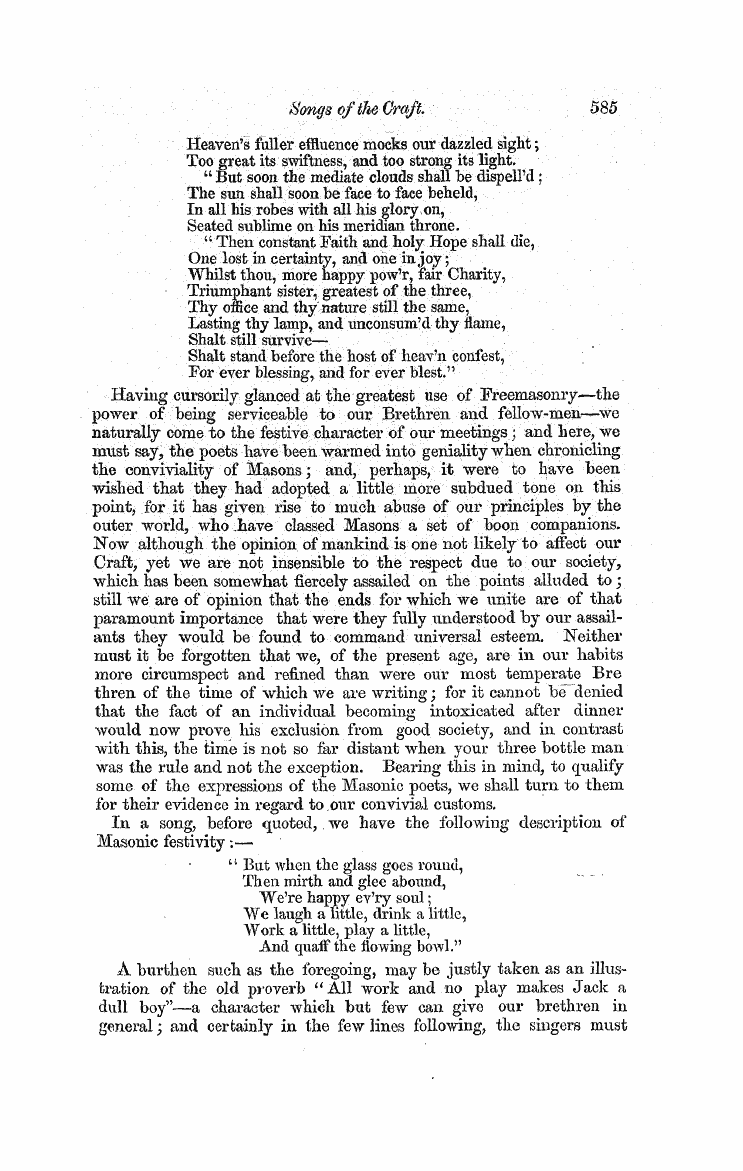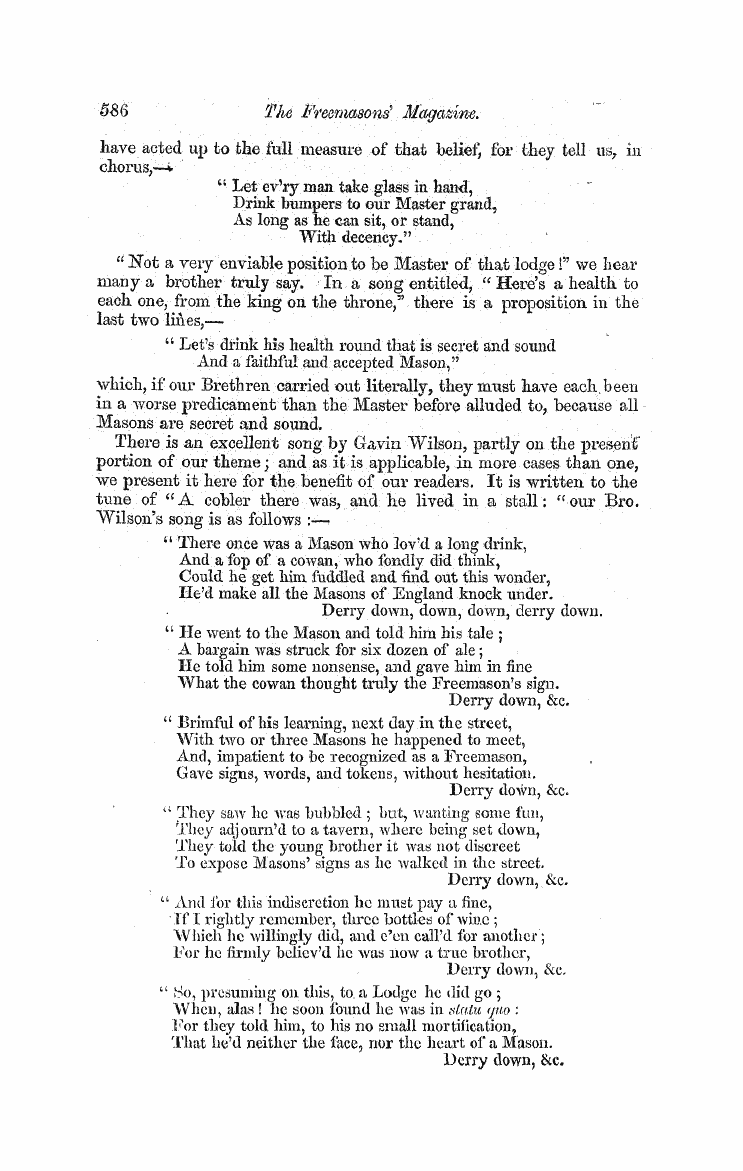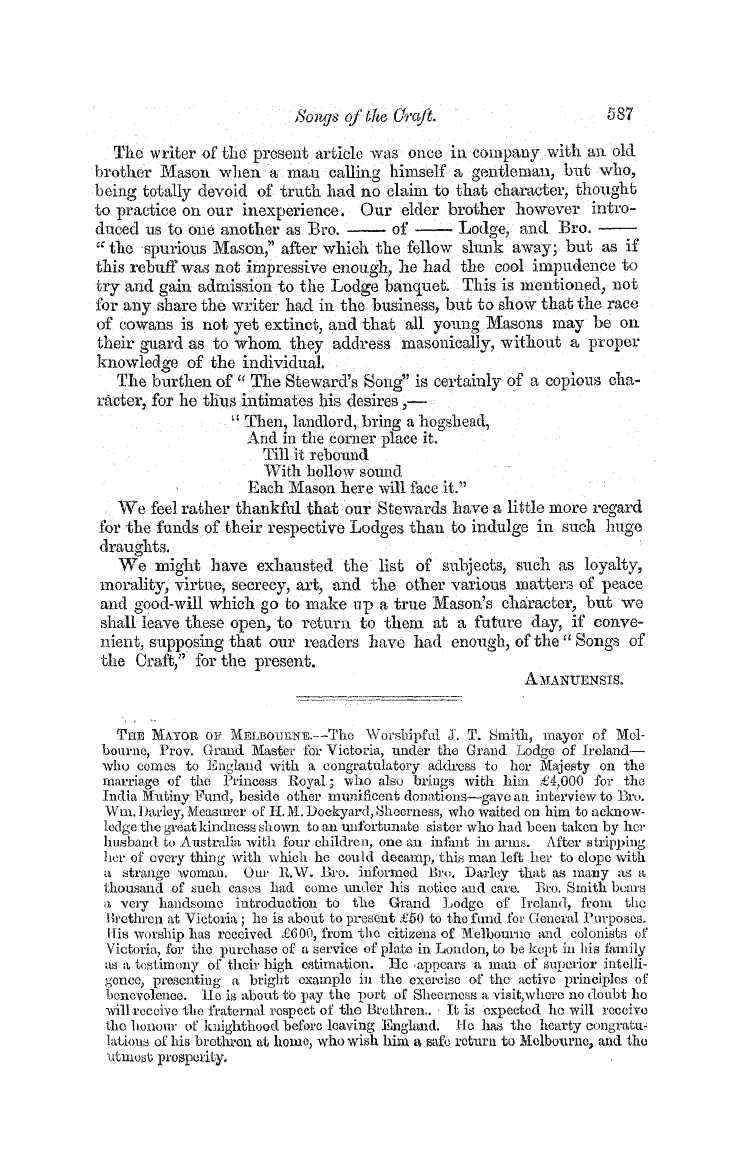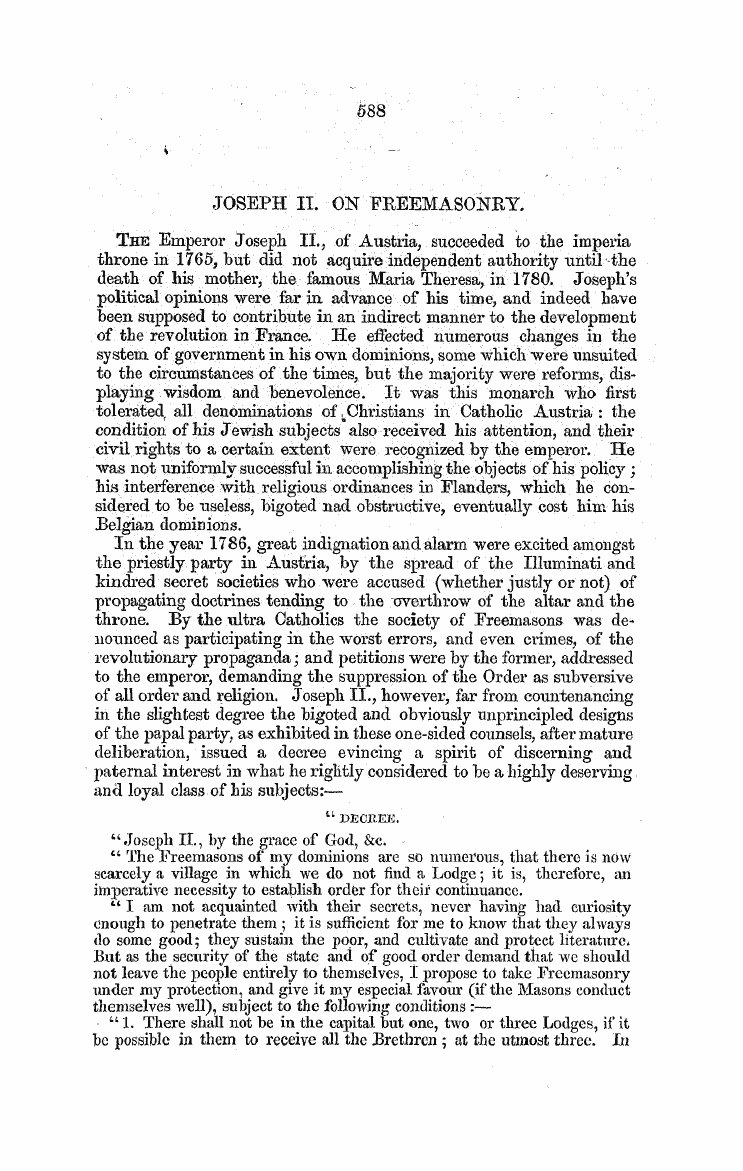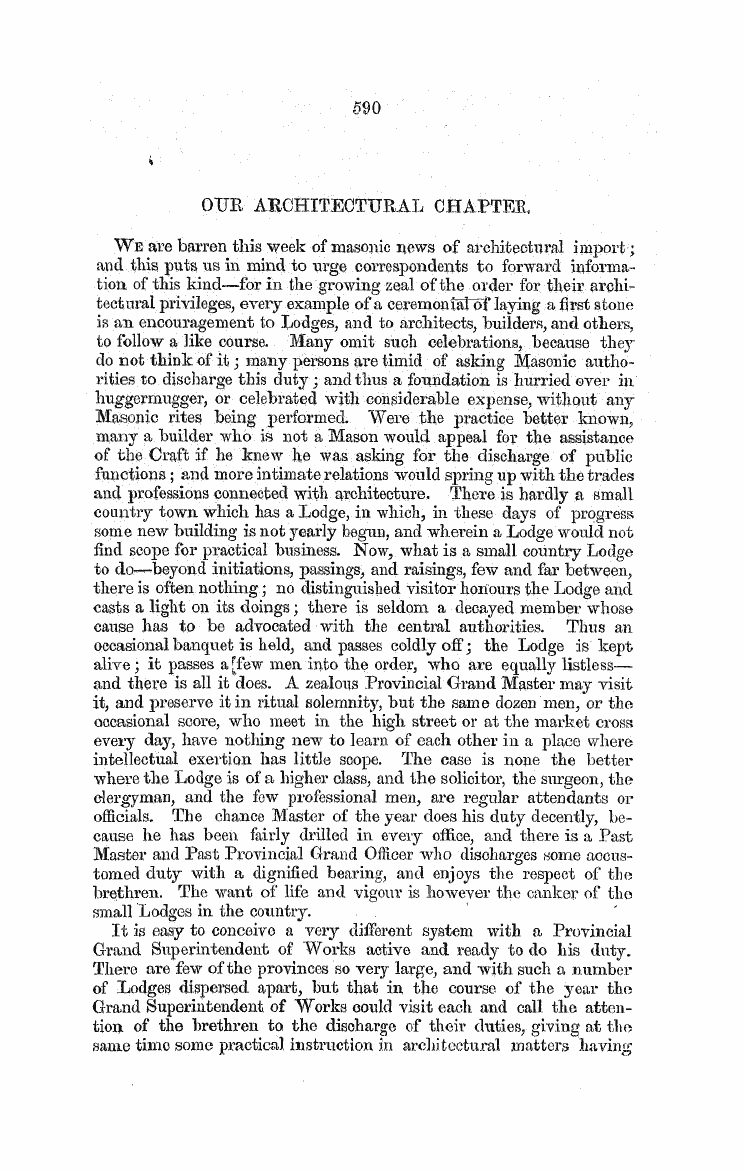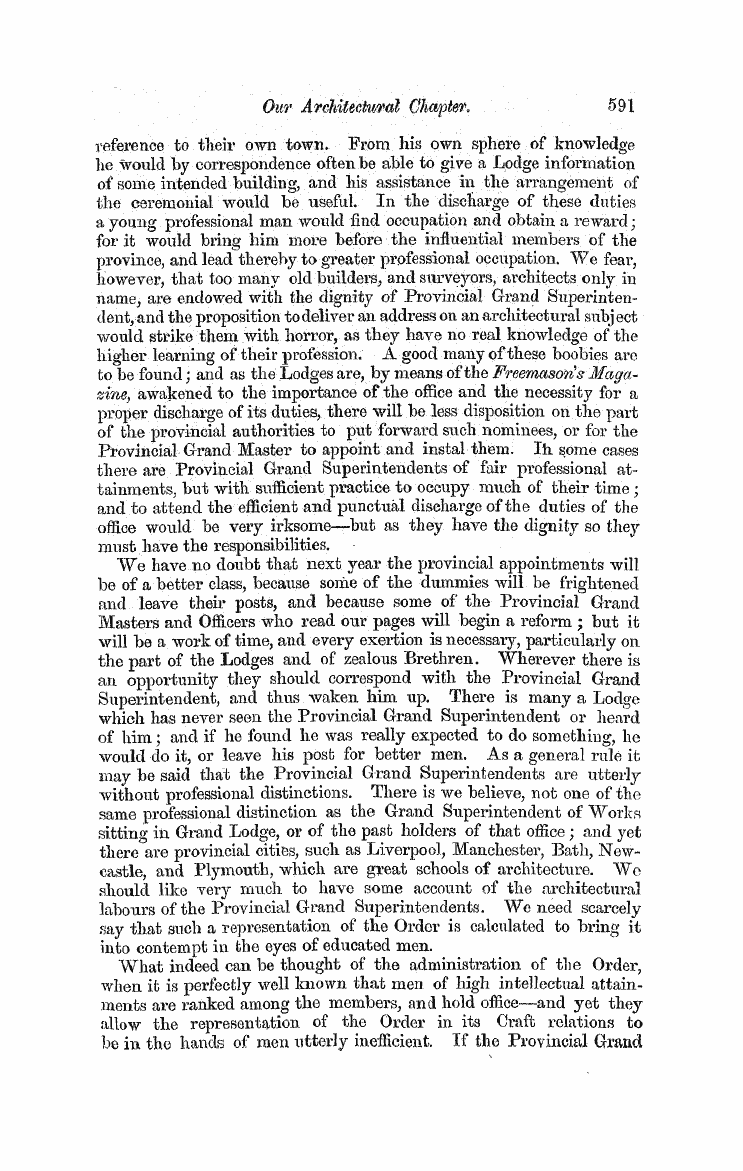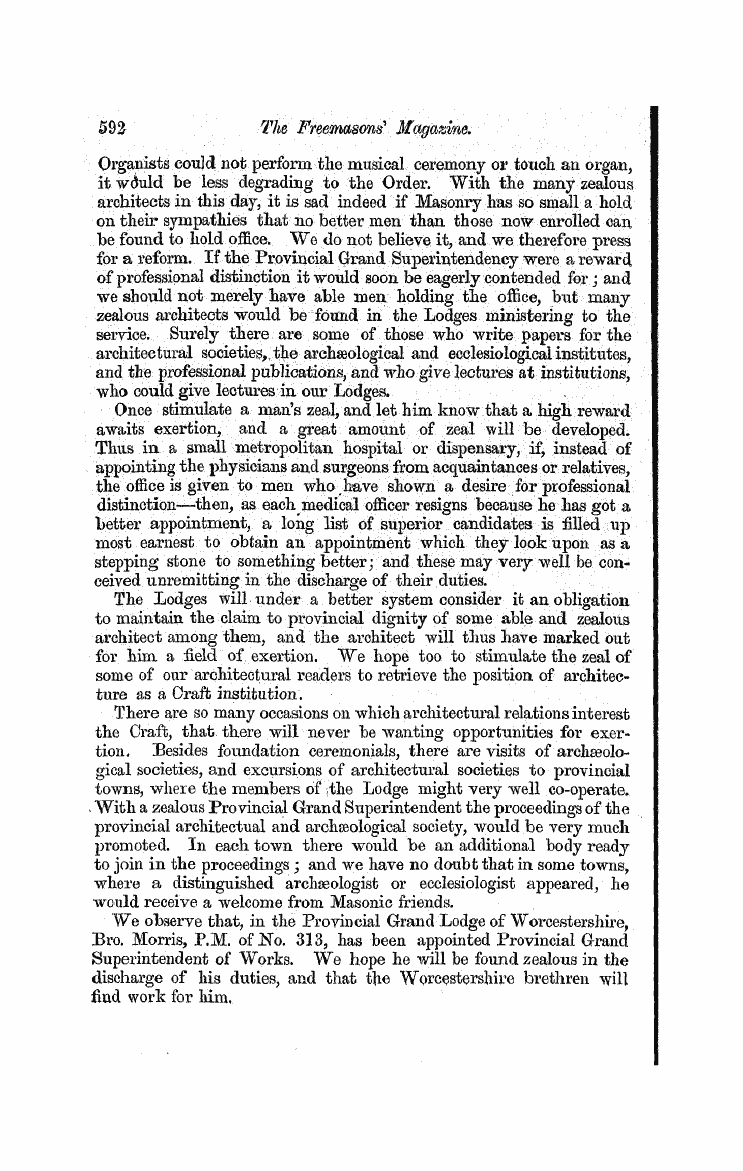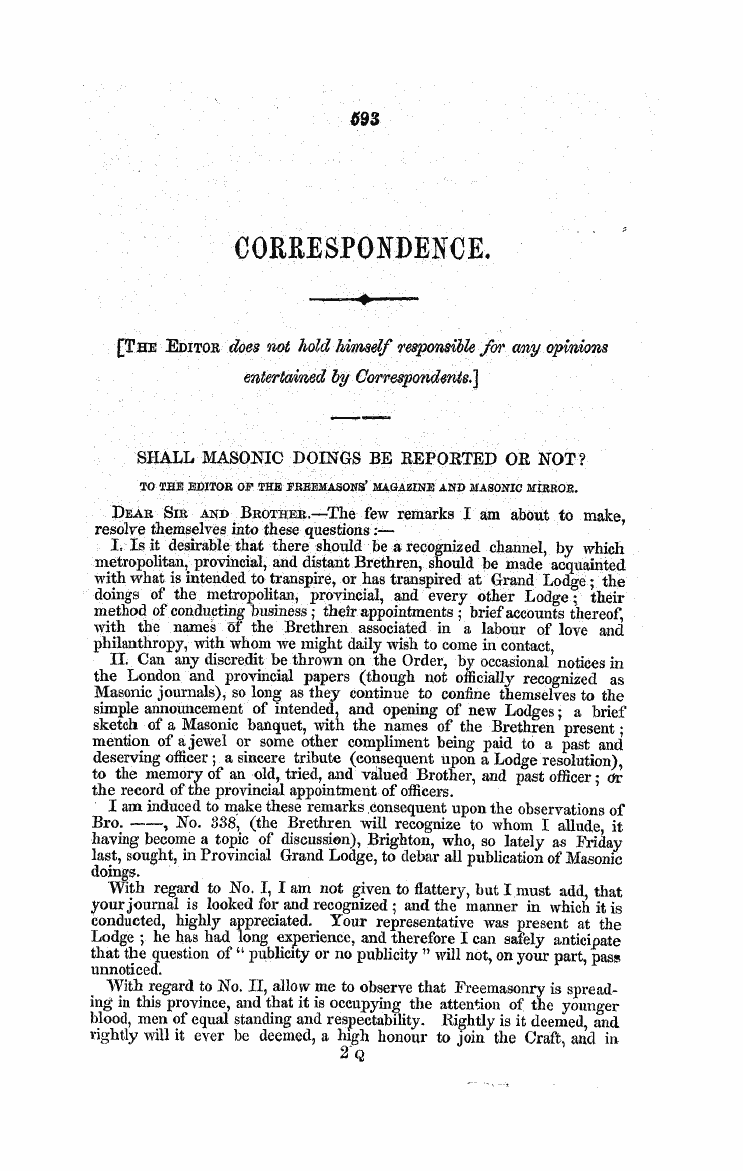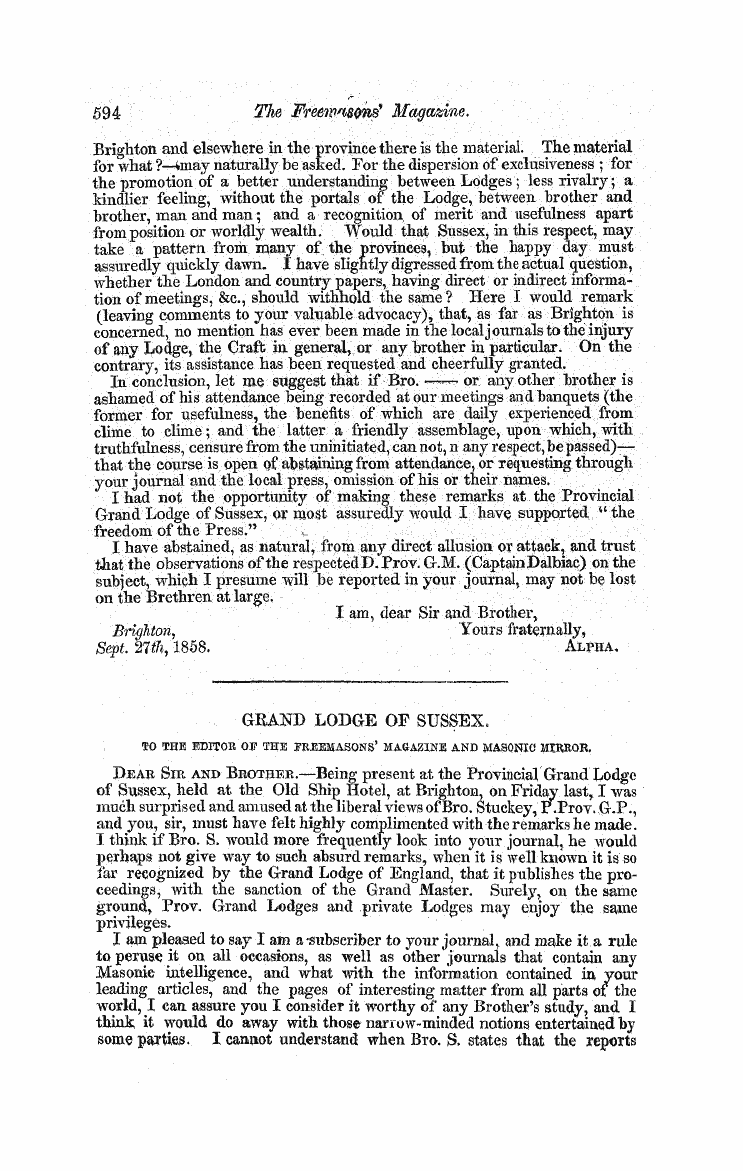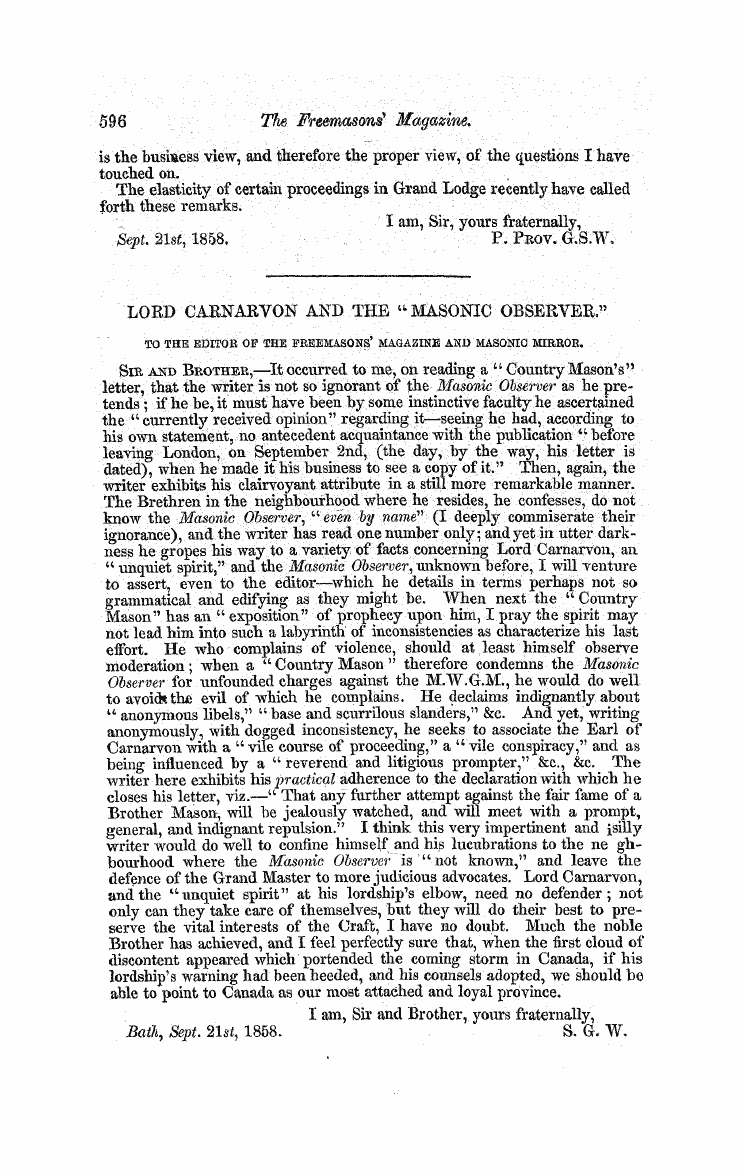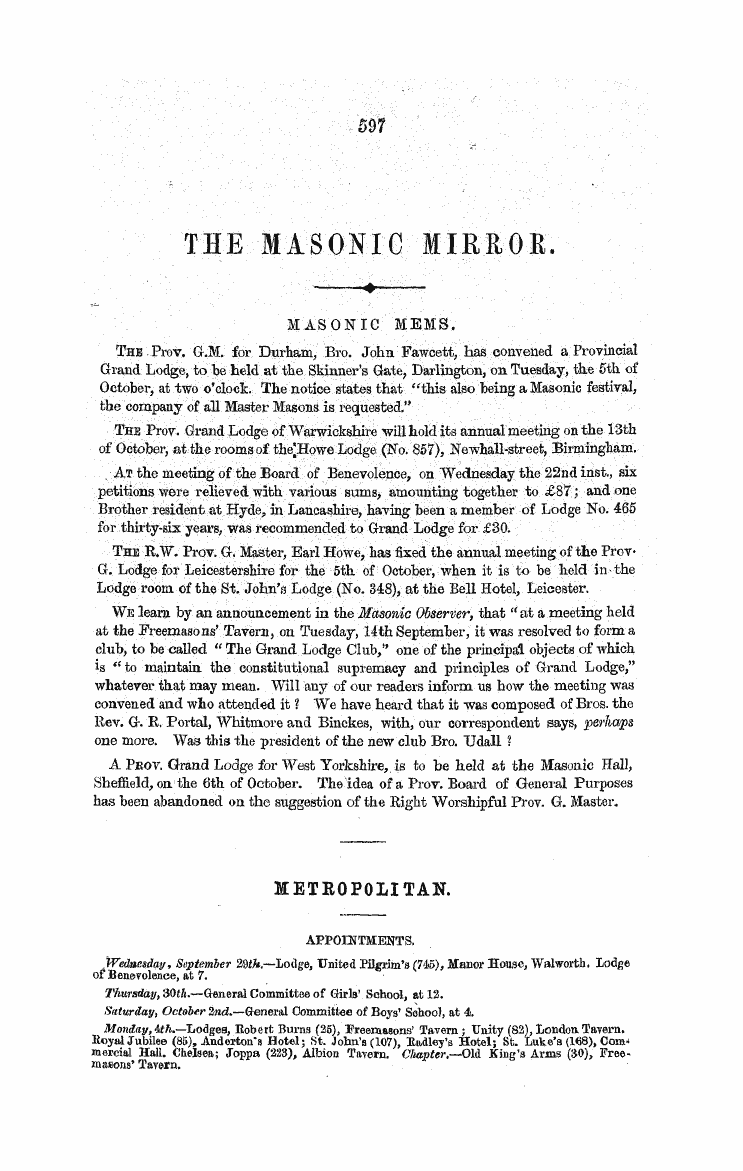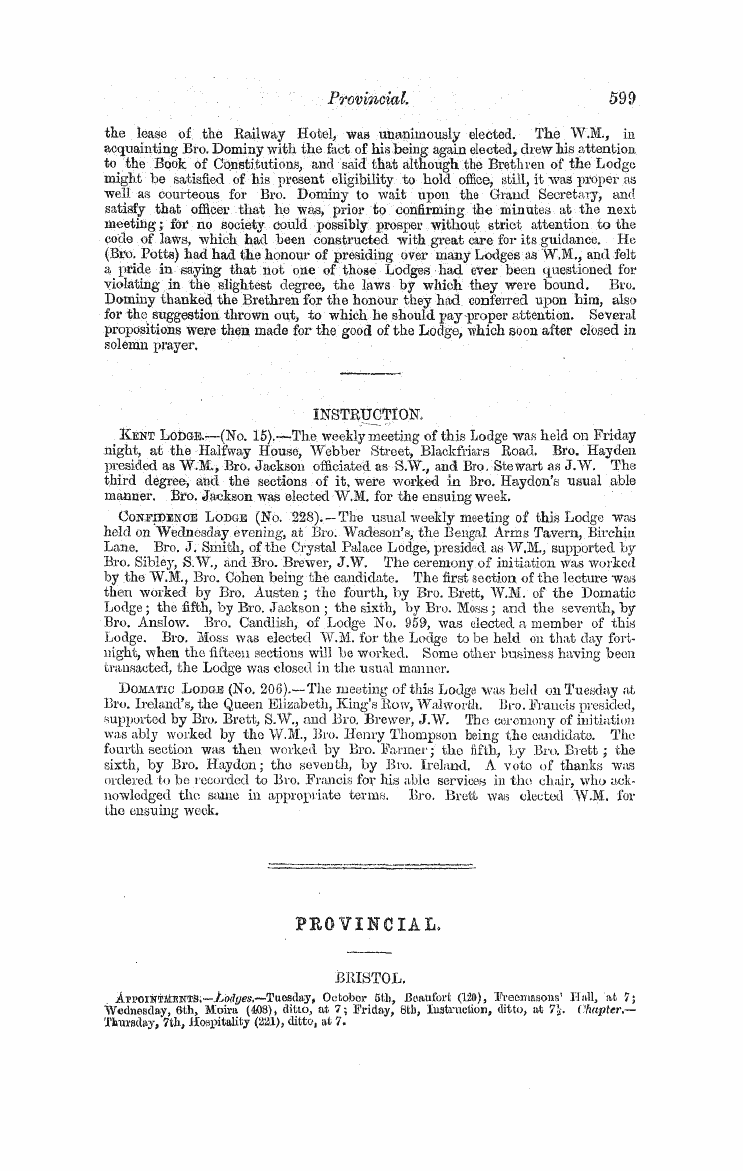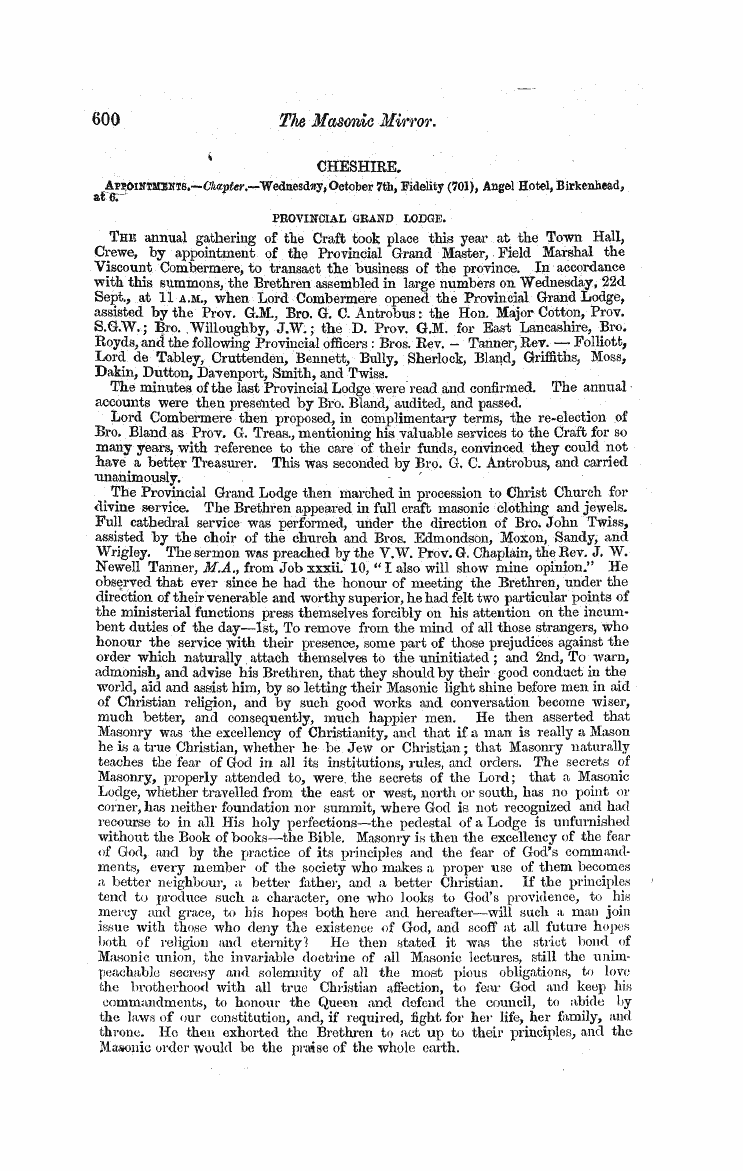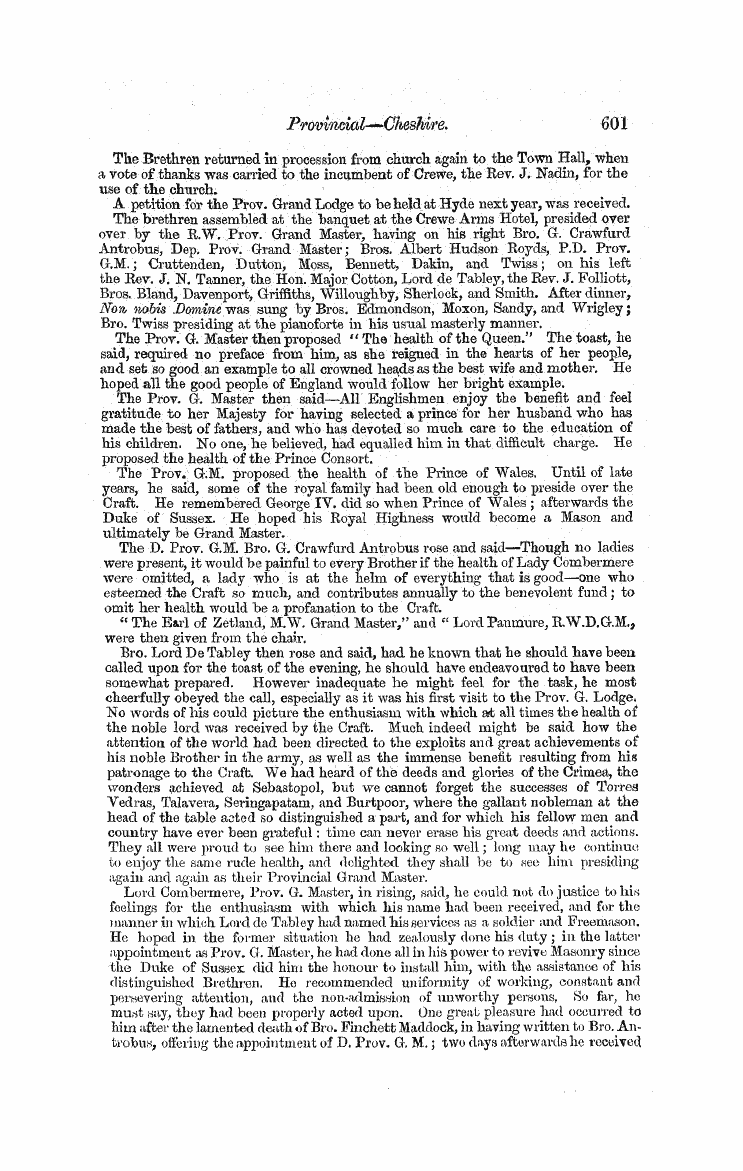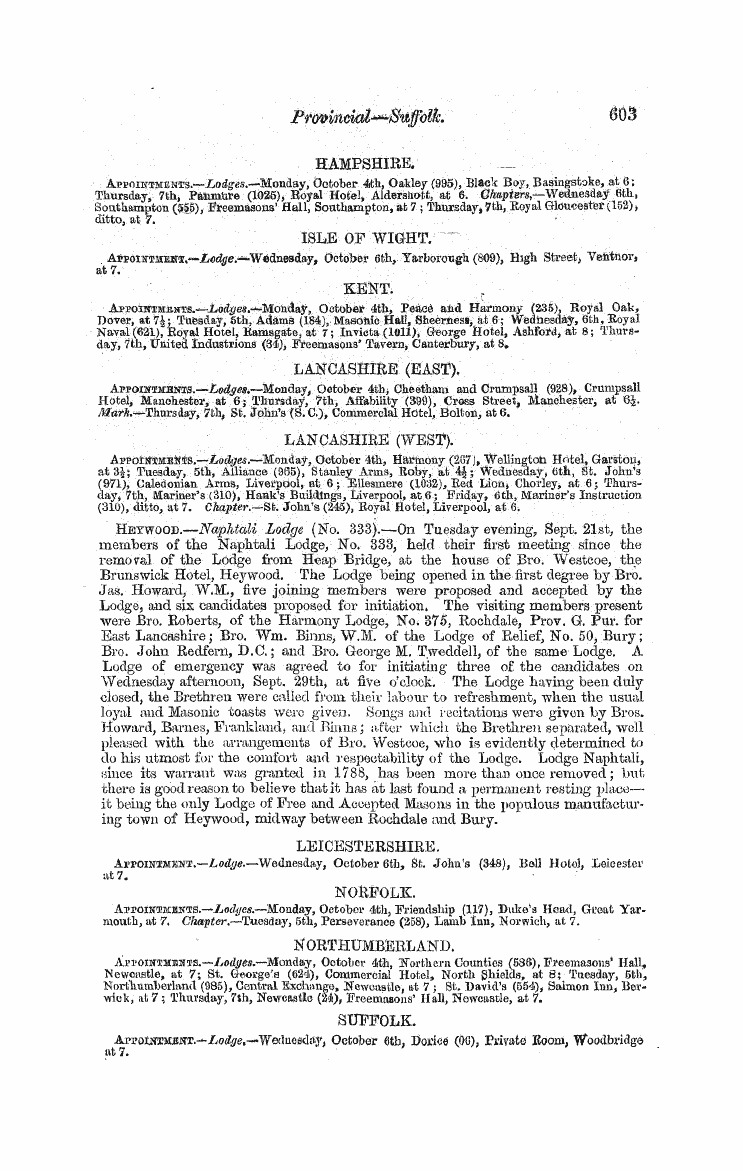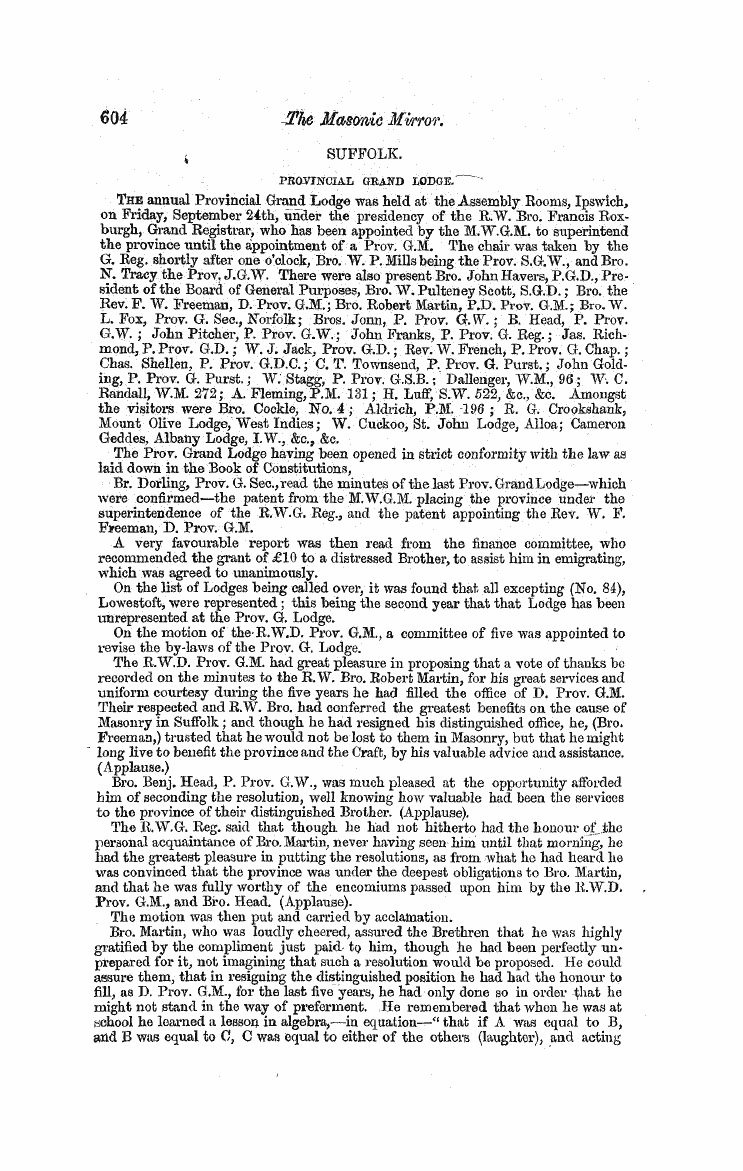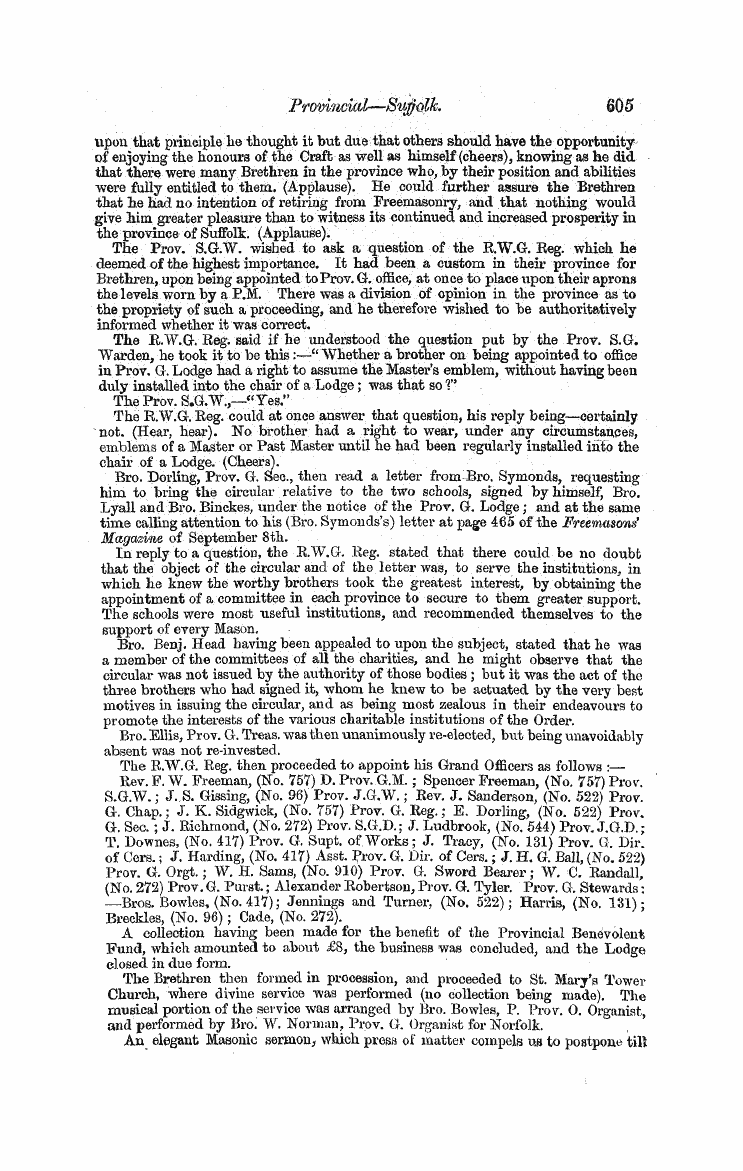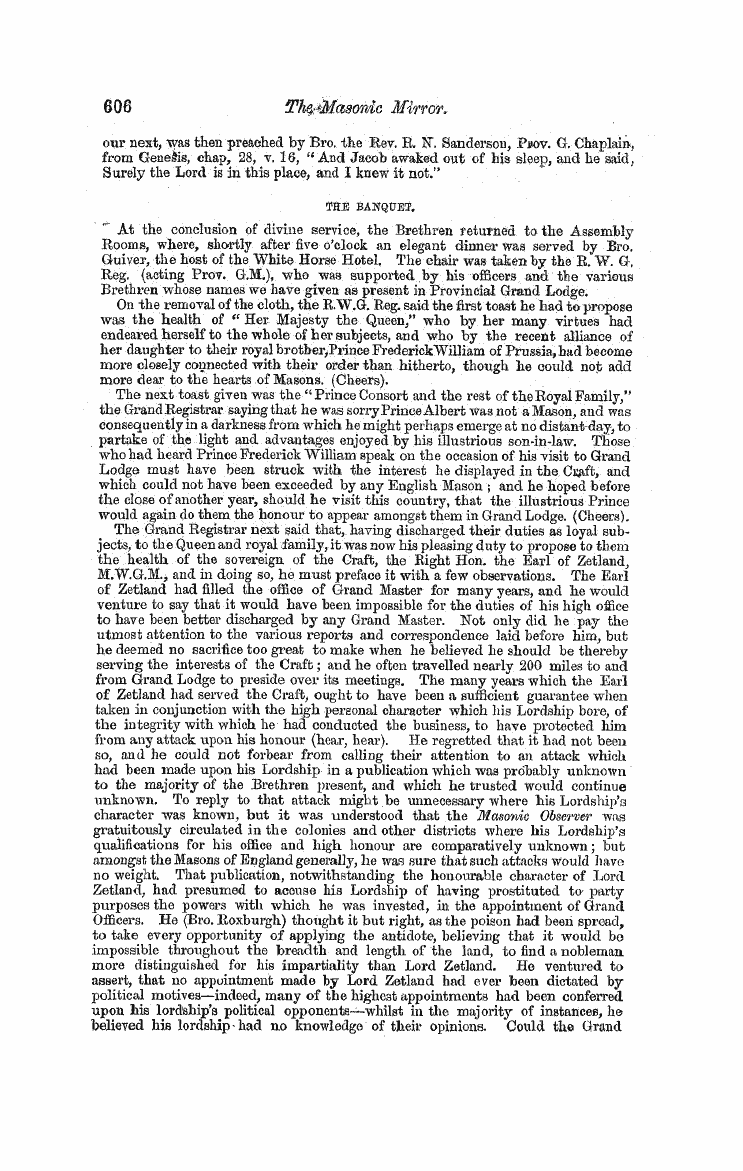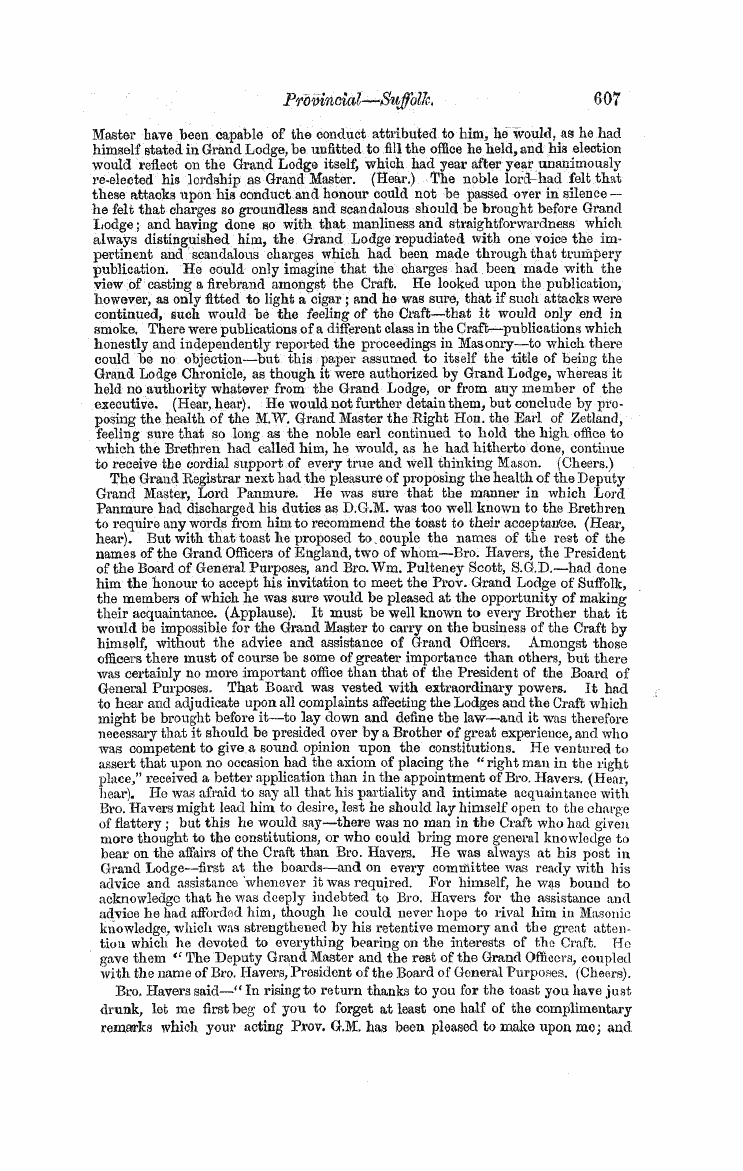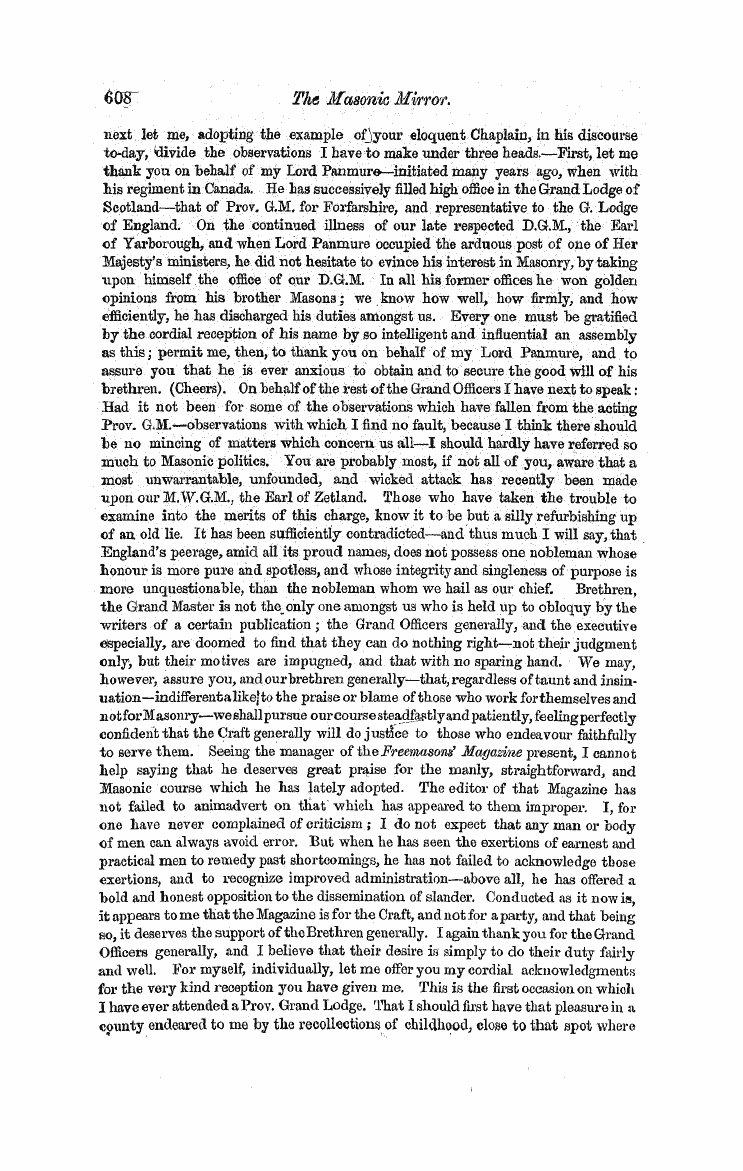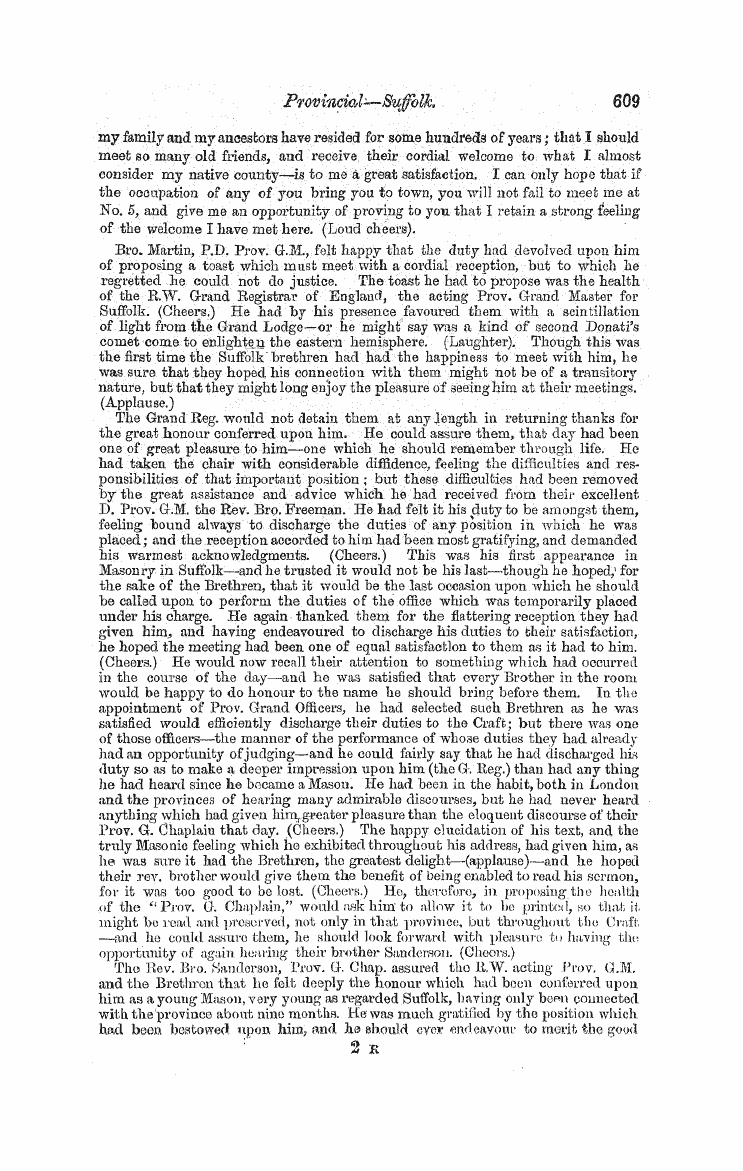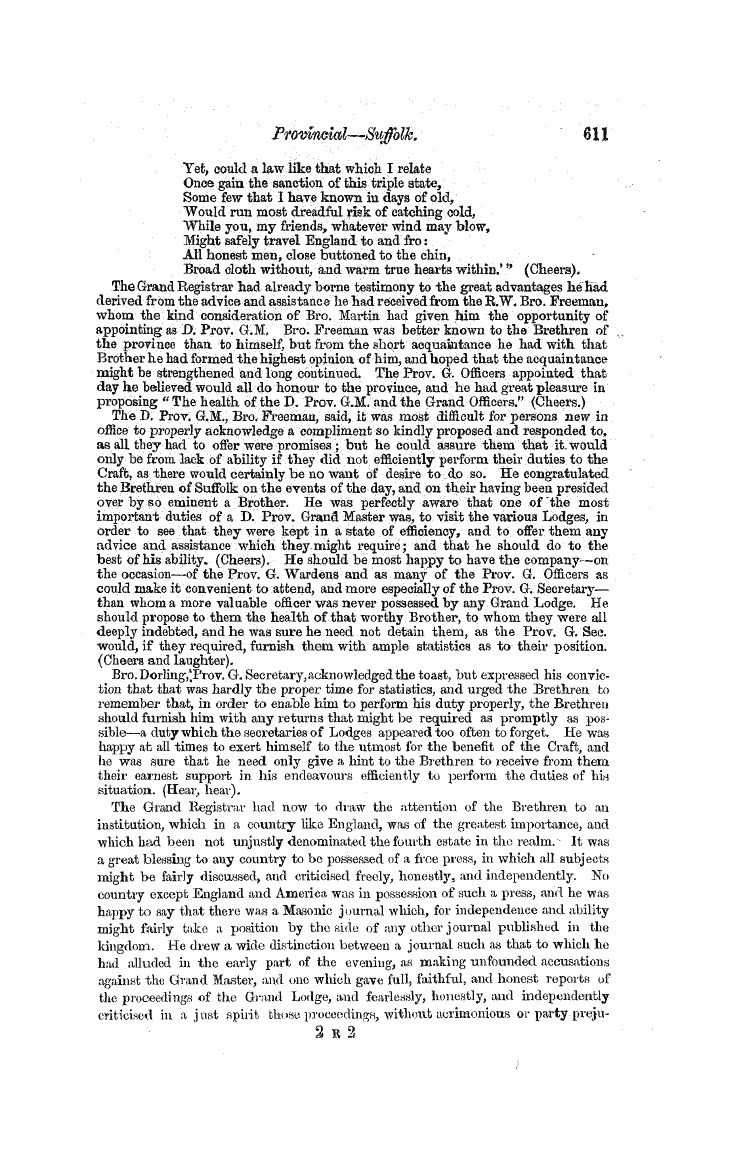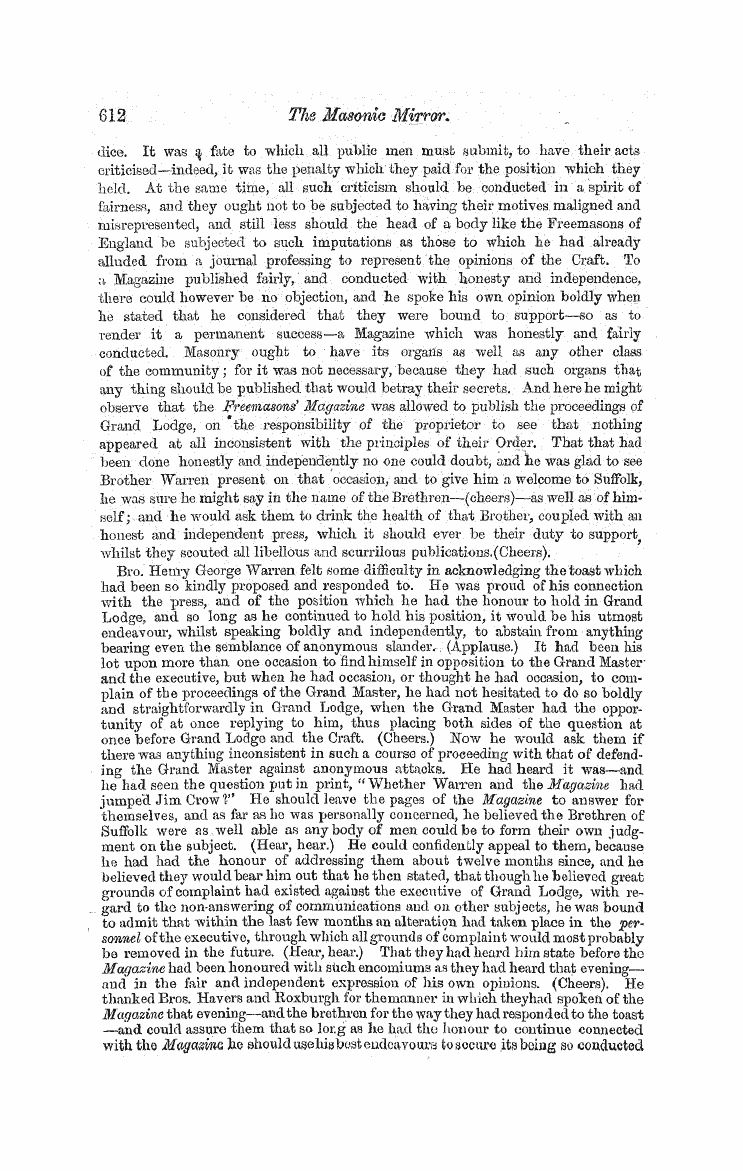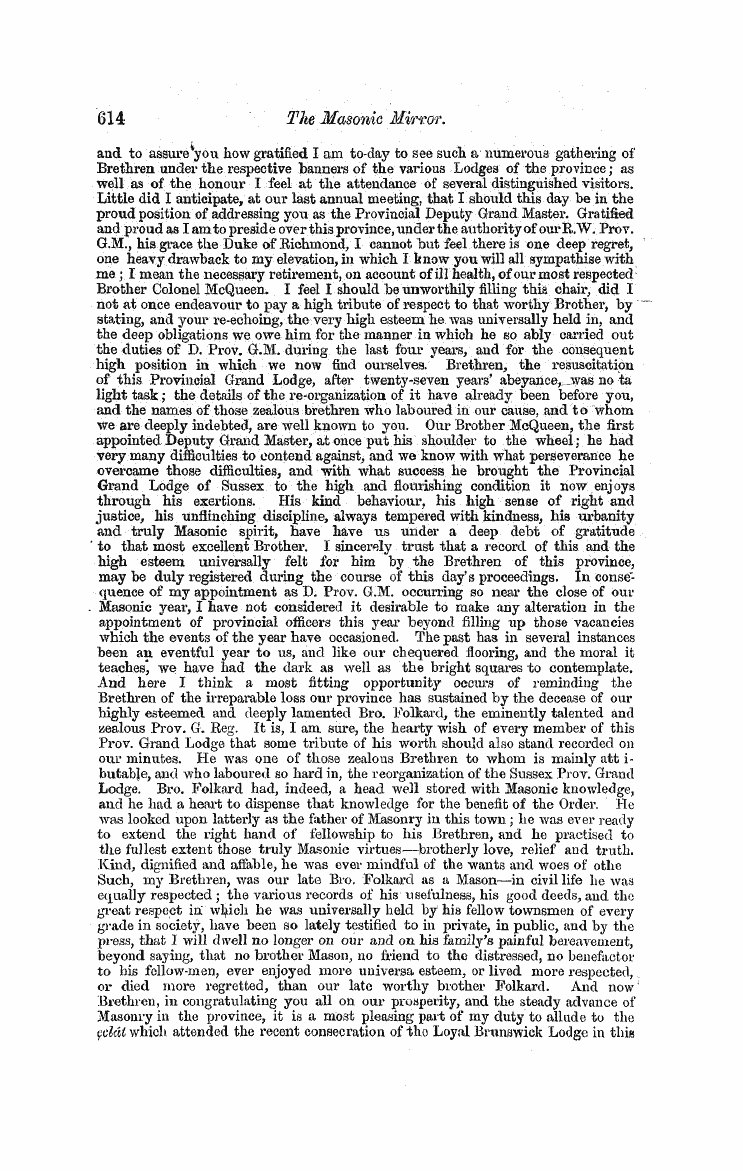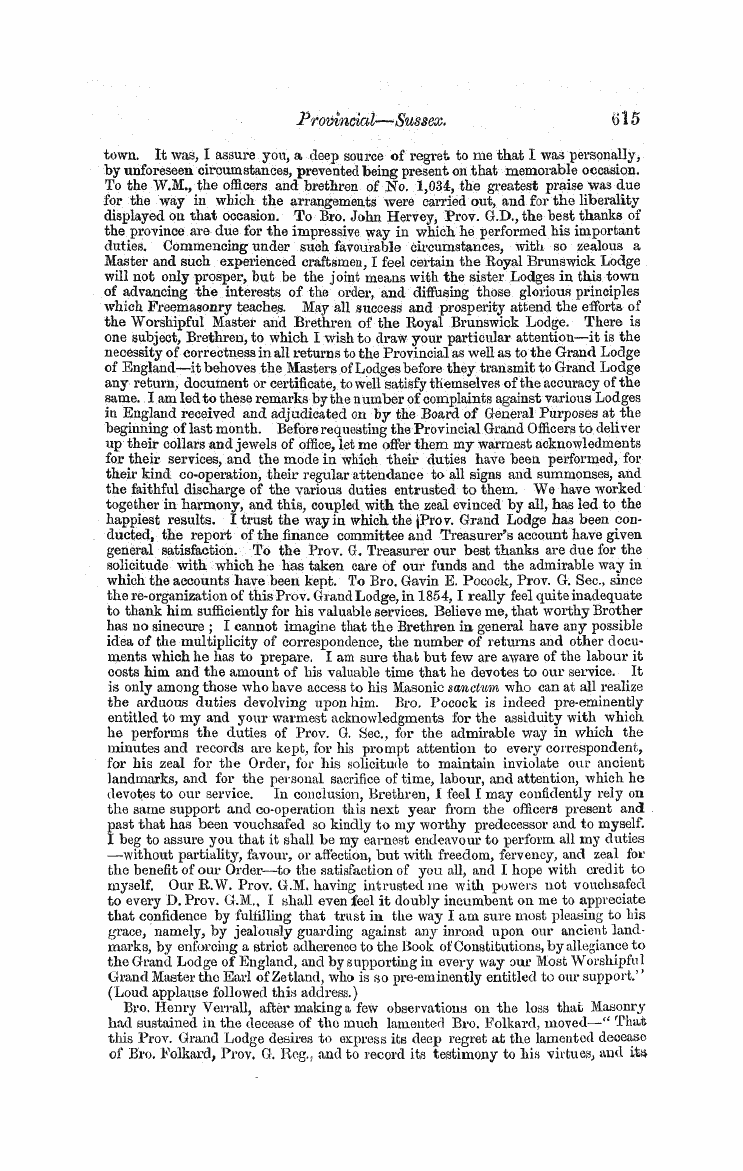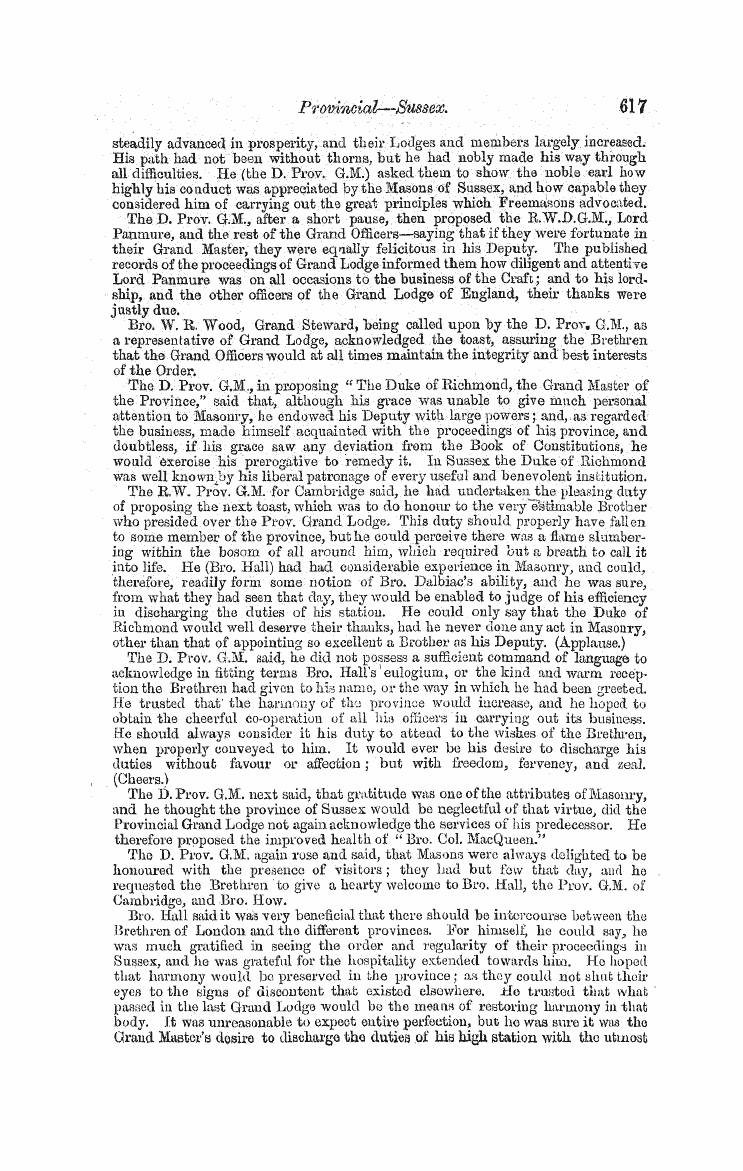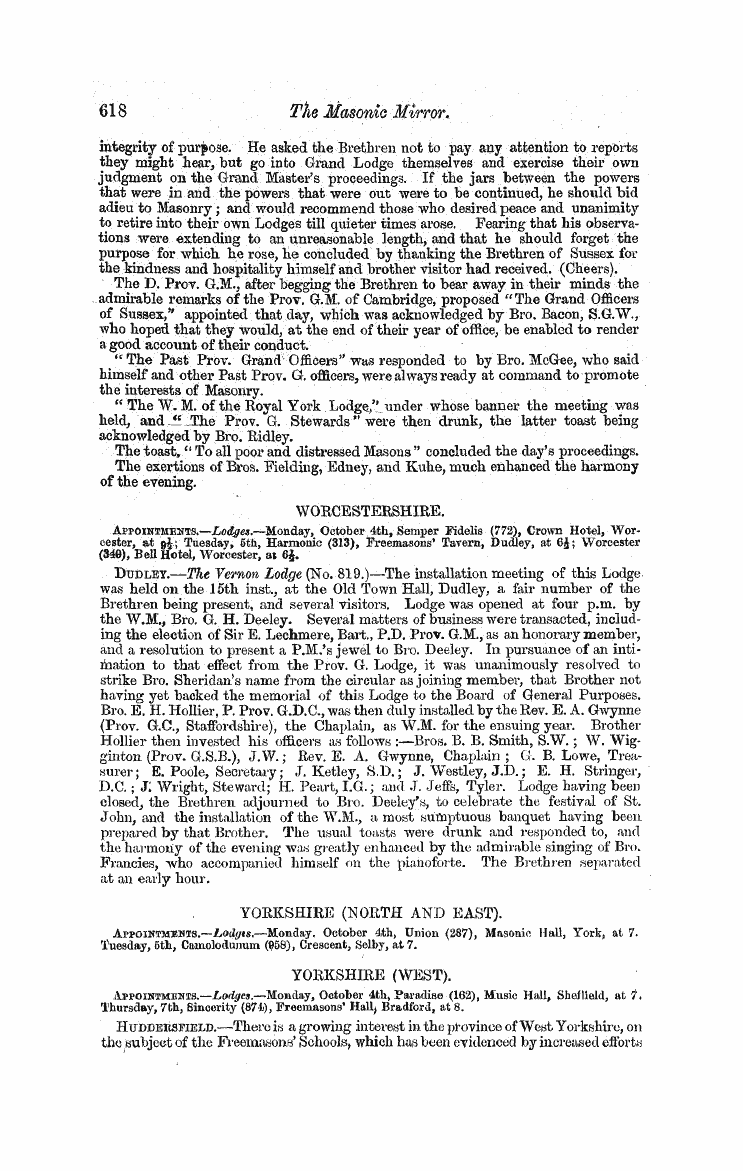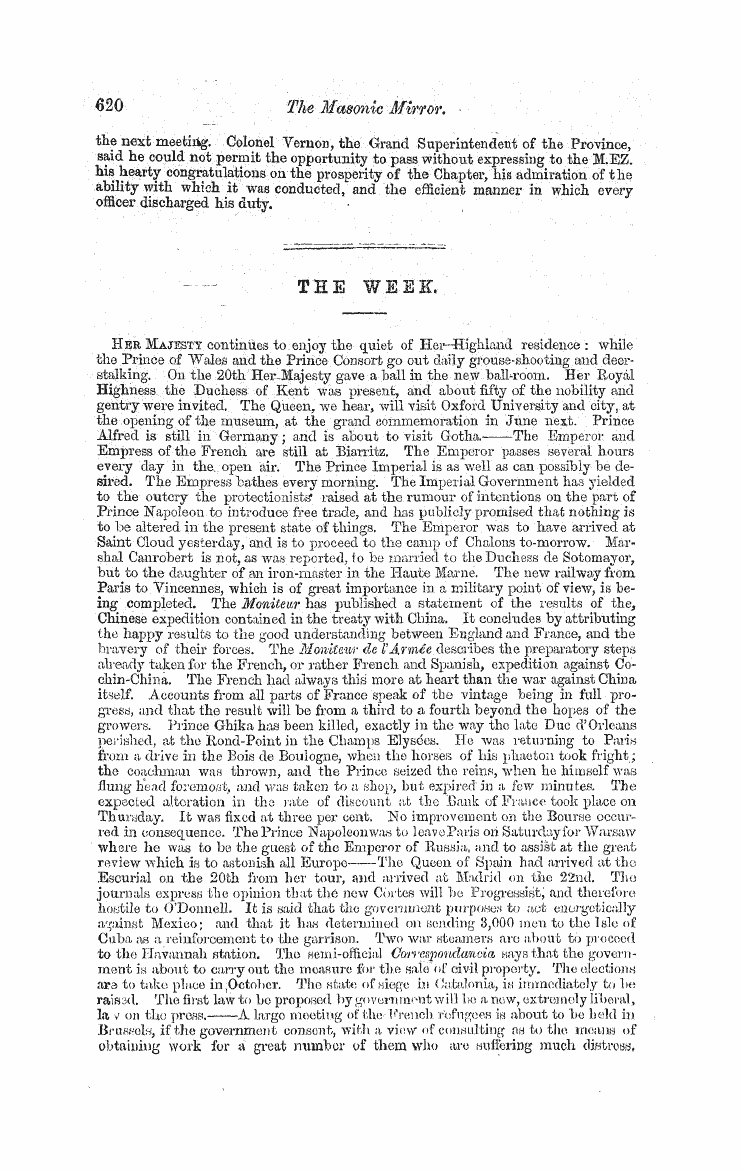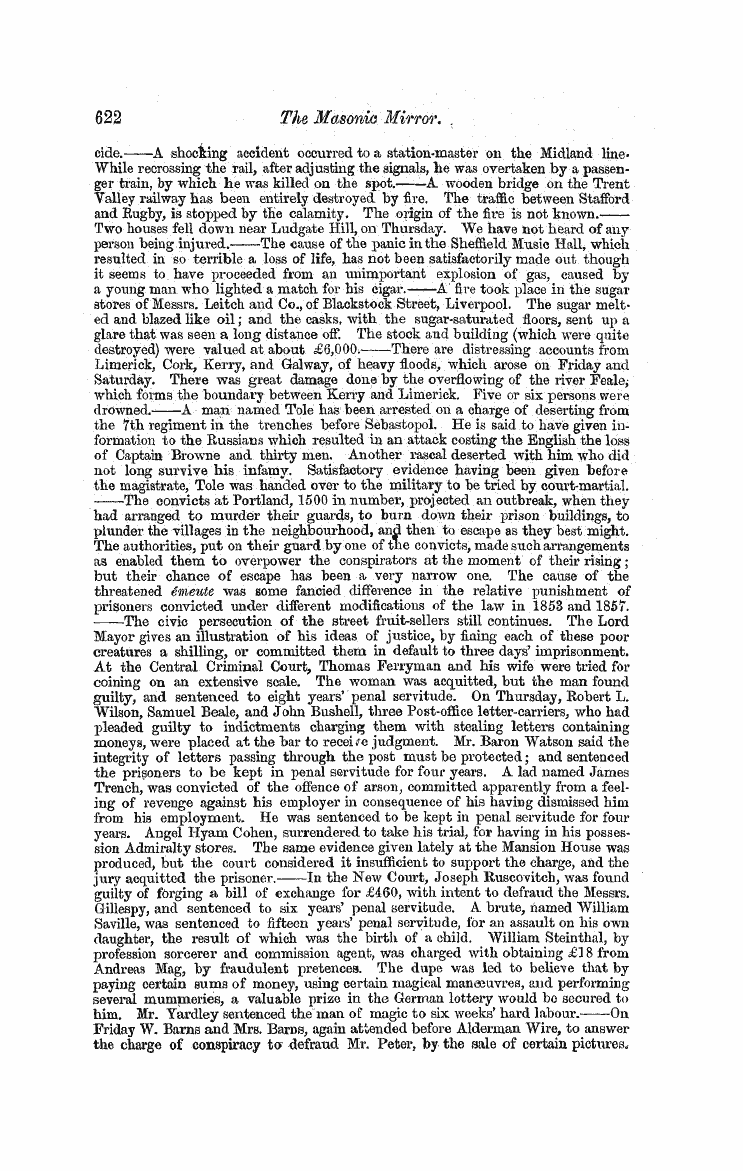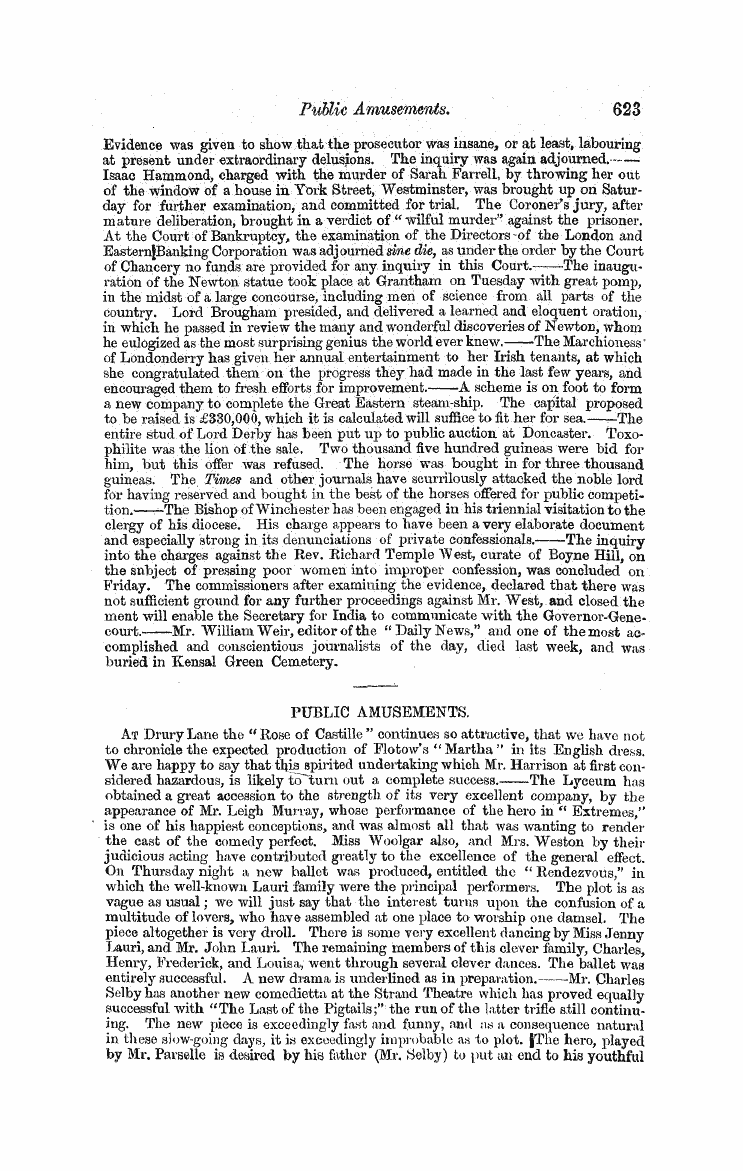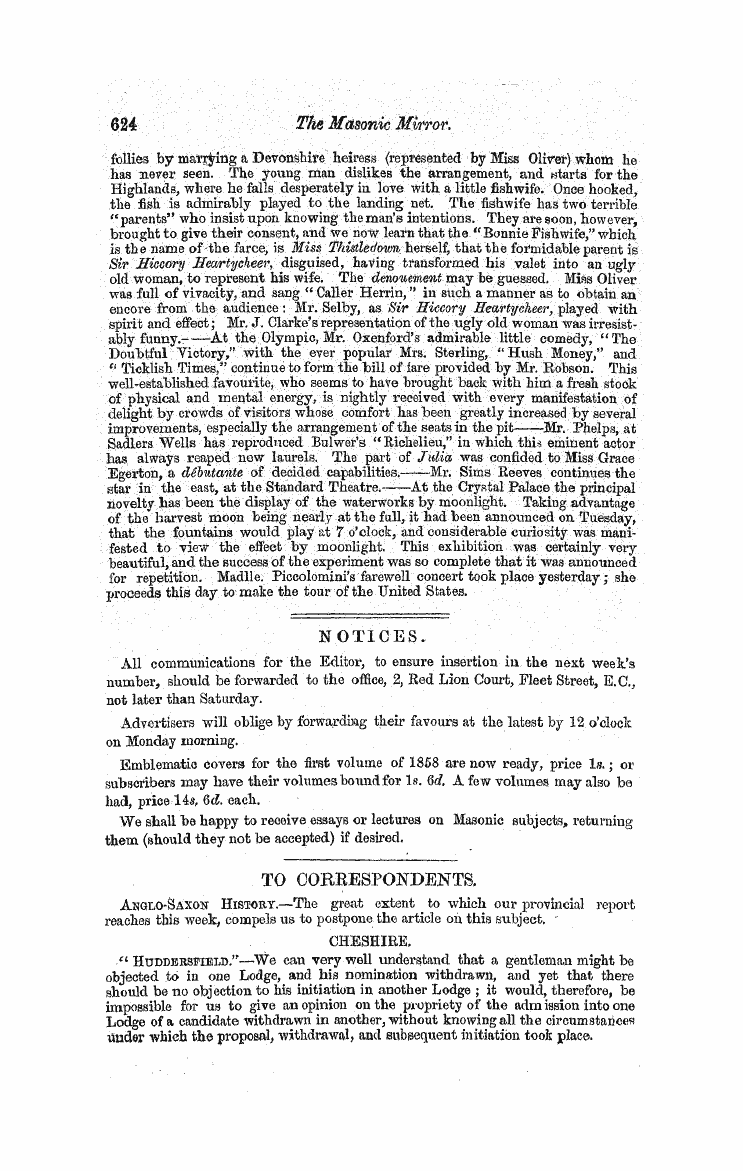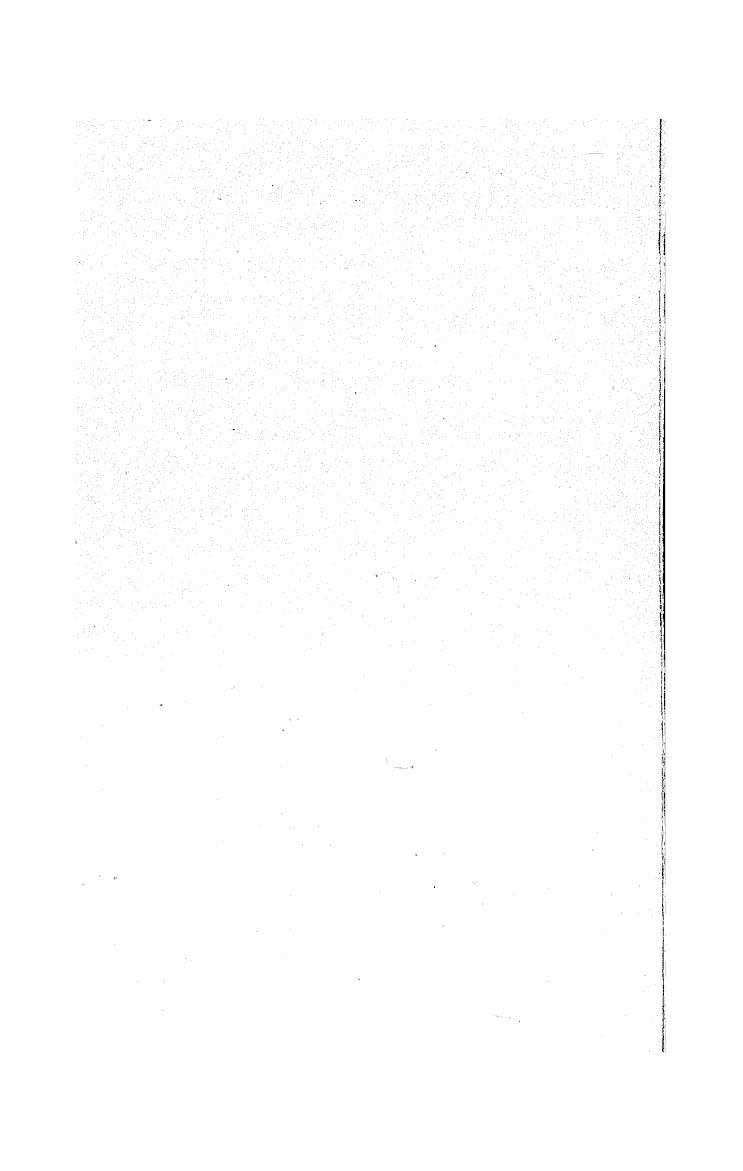-
Articles/Ads
Article COMESFONDEIfE ← Page 3 of 4 →
Note: This text has been automatically extracted via Optical Character Recognition (OCR) software.
Comesfondeife
in public j ^ some occasions fo attend Lodges where he is afraid his name will appear ? I cannot think and for the future should advise him fo ^ herald forth to the public our words and actions I think therein he will be taught the duty he owes to his Lodge , his Brethren , and the press . I am , Dear Sir andBrother , Sussex , Yours fraternally , Sept . 27 th , 1868 . Justice ,
CO . NFIEMAEION OF MINUTES
TO THt EDITOR OP THE PREM SjEr aot > BBOTHER ,-- ^ here is a piece of absurdity fre < piently performed in Grand Lodge , which ! think it high time should he exposed and put an end to , namely , the sub ^ ing ^ an ameihdihent to the motion 4 i ^ Lodge be w confirmed only iii paqrt . In order that the grounds * of to thi s oint out
^ proceeding may be ftdly uii ^^ necessary to p the regular mode of procedure in reference to the minutes of meetings . In the first placed hotices are given of motions , and when the motions are given publicly , notices of amendments are also often given immediately after . These notices and amendments form the agenda at the next meeting ; and the decisions arrived at , together with the motions and amendments , donstitute the minutes of the proceedings at that meeting—and when such *
minutes are put for confirmation at a subsequ ^ it meeting , the appeal is as to the correctness ofthe minutes so entered , whether they truthfully represent the proceedings of the meeting recorded . No one can , when the minutes are correct , with any regard to truth , move that such minutes be not confirmed , nor can any amendment be entertained on the question that the minutes be confirmed which tends to alter or erase a minute correctly
entered on the record . Such amendment , i . e ., any motion to alter or erase , what has already been legally decided on , can only be brought forward as a substantive motion , of which legal notice must be given . I shall be told that it has always been the custom in Grand Lodge to allow such amendments . But what of that ? The custom is wrong , and the sooner it is amended the better . .
Again , as to reports of committees ; when presented , they are presented for either reception or adoption , and therefore the motion for reception or adoption admits of an amendment . If , again , a report be presented , and the reporters recommend such report to lay upon the table , such recommendation is open to an amendment . If letters be read in Grand Lodge , or anywhere else , the very fact of reading them brings their contents legally under the consideration ofthe Grand Lodge , and therefore rendsre
them the subject of motion without previous notice , if the mover of such motion thinks fit . The necessity of quick or slow action thereon has nothing to do with the matter . If the question be one admitting of delay , then a motion may be made to consider it at a future period , but the power of making any motion thereon is not excluded . Whatever the Book of Constitutions may rule to the contrary , the above
Note: This text has been automatically extracted via Optical Character Recognition (OCR) software.
Comesfondeife
in public j ^ some occasions fo attend Lodges where he is afraid his name will appear ? I cannot think and for the future should advise him fo ^ herald forth to the public our words and actions I think therein he will be taught the duty he owes to his Lodge , his Brethren , and the press . I am , Dear Sir andBrother , Sussex , Yours fraternally , Sept . 27 th , 1868 . Justice ,
CO . NFIEMAEION OF MINUTES
TO THt EDITOR OP THE PREM SjEr aot > BBOTHER ,-- ^ here is a piece of absurdity fre < piently performed in Grand Lodge , which ! think it high time should he exposed and put an end to , namely , the sub ^ ing ^ an ameihdihent to the motion 4 i ^ Lodge be w confirmed only iii paqrt . In order that the grounds * of to thi s oint out
^ proceeding may be ftdly uii ^^ necessary to p the regular mode of procedure in reference to the minutes of meetings . In the first placed hotices are given of motions , and when the motions are given publicly , notices of amendments are also often given immediately after . These notices and amendments form the agenda at the next meeting ; and the decisions arrived at , together with the motions and amendments , donstitute the minutes of the proceedings at that meeting—and when such *
minutes are put for confirmation at a subsequ ^ it meeting , the appeal is as to the correctness ofthe minutes so entered , whether they truthfully represent the proceedings of the meeting recorded . No one can , when the minutes are correct , with any regard to truth , move that such minutes be not confirmed , nor can any amendment be entertained on the question that the minutes be confirmed which tends to alter or erase a minute correctly
entered on the record . Such amendment , i . e ., any motion to alter or erase , what has already been legally decided on , can only be brought forward as a substantive motion , of which legal notice must be given . I shall be told that it has always been the custom in Grand Lodge to allow such amendments . But what of that ? The custom is wrong , and the sooner it is amended the better . .
Again , as to reports of committees ; when presented , they are presented for either reception or adoption , and therefore the motion for reception or adoption admits of an amendment . If , again , a report be presented , and the reporters recommend such report to lay upon the table , such recommendation is open to an amendment . If letters be read in Grand Lodge , or anywhere else , the very fact of reading them brings their contents legally under the consideration ofthe Grand Lodge , and therefore rendsre
them the subject of motion without previous notice , if the mover of such motion thinks fit . The necessity of quick or slow action thereon has nothing to do with the matter . If the question be one admitting of delay , then a motion may be made to consider it at a future period , but the power of making any motion thereon is not excluded . Whatever the Book of Constitutions may rule to the contrary , the above































































































































































































